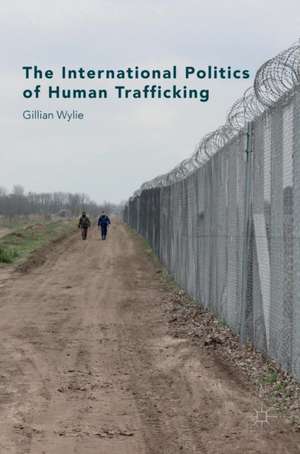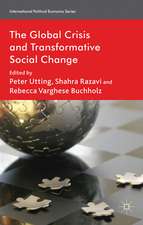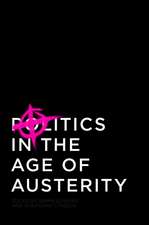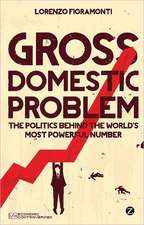The International Politics of Human Trafficking
Autor Gillian Wylieen Limba Engleză Hardback – 12 sep 2016
Preț: 582.63 lei
Preț vechi: 685.45 lei
-15% Nou
Puncte Express: 874
Preț estimativ în valută:
111.49€ • 116.70$ • 92.79£
111.49€ • 116.70$ • 92.79£
Carte tipărită la comandă
Livrare economică 31 martie-14 aprilie
Preluare comenzi: 021 569.72.76
Specificații
ISBN-13: 9781137377746
ISBN-10: 1137377747
Pagini: 224
Ilustrații: IX, 197 p.
Dimensiuni: 148 x 210 x 17 mm
Greutate: 0.38 kg
Ediția:1st ed. 2016
Editura: Palgrave Macmillan UK
Colecția Palgrave Macmillan
Locul publicării:London, United Kingdom
ISBN-10: 1137377747
Pagini: 224
Ilustrații: IX, 197 p.
Dimensiuni: 148 x 210 x 17 mm
Greutate: 0.38 kg
Ediția:1st ed. 2016
Editura: Palgrave Macmillan UK
Colecția Palgrave Macmillan
Locul publicării:London, United Kingdom
Cuprins
1. Introducing the International Politics of Human Trafficking.- 2. Norm Construction in International Politics.- 3. Norm Emergence: Entrepreneurs, Interests and the Palermo Protocol.- 4. Norm Cascade and the Hegemon.- 5. Norm Socialization: Localizing the Global, Regionalizing the Local.- 6. The Neglected Norm: Trafficking for Forced Labour.- 7. The Far End of the Lifecycle: Common Knowledge and its Consequences.- 8. Conclusion: Why Trafficking, Why Now and with What Consequences?
Notă biografică
Gillian Wylie is Assistant Professor of International Peace Studies in Trinity College Dublin. Her research and teaching interests span human trafficking and migration, international politics and gender issues as they relate to war and peace.
Textul de pe ultima copertă
This book explores the international politics behind the identification of human trafficking as a major global problem. Since 2000, tackling human trafficking has spawned new legal, security and political architecture. This book is grounded in the premise that the intense response to this issue is at odds with the shaky statistics and contentious definitions underpinning it. Given the disparity between architecture and evidence, Wylie asks why human trafficking has become widely understood as a threat to personal and state security in today's world. Relying on the idea of 'norm lifecycle' from constructivist International Relations, this volume traces the rise and impact of anti-trafficking activism. Global common knowledge about trafficking is now established, but at a cost. Taking issue with the predominant framing of trafficking as sexual exploitation, this book focuses on how contemporary globalization causes labour exploitation, while the concept of trafficking legitimates states' securitized responses to migration.
Caracteristici
Identifies the gap between heightened rhetoric surrounding human trafficking and the evidence for the claims about it Analyses the way trafficking discourses are being used in the European political response to the migration crisis Traces the life-cycle of the anti-trafficking norm from emergence to becoming 'common knowledge'
















